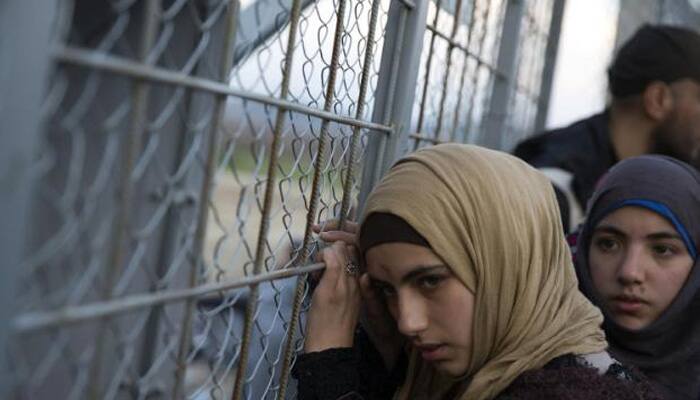Istanbul: EU and Turkish leaders on Tuesday sought to turn into a lasting accord a plan on easing Europe`s migrant crisis hailed as a game-changer by Ankara and Brussels but swiftly criticised by the UN`s refugee chief.
The day after agreeing the tentative plan following late night talks in Brussels, Turkish Prime Minister Ahmet Davutoglu was to discuss how it could work in a crucial meeting with his Greek counterpart Alexis Tsipras.
The EU is wooing Turkey -- used by over one million migrants in the last year as a springboard for reaching the bloc -- as the key player in helping ease Europe`s worst migrant crisis since World War II.
The talks in Brussels were expected to be tough but Davutoglu upped the ante by bringing additional Turkish demands to the table -- such as accelerated visa liberalisation -- as well as offering more than EU diplomats expected.
But after hours of talks, EU president Donald Tusk described the outcome as a "breakthrough" and said he would now work on the legal details to reach a final deal at a European summit in Brussels on March 17-18.
A key pillar of the mooted deal was the unexpected offer by Ankara to take back every irregular migrant that crosses from Turkey to the islands of EU member Greece.
In return, the EU would then resettle one Syrian living in Turkey on its territory for every Syrian migrant it takes back from Greece.
The hope is that the plan will eliminate incentives for migrants to come to Greece by boat, but it ran into swift opposition from the head of the UN refugee agency Filippo Grandi.
"I`m deeply concerned about any arrangement that would involve the blanket return of anyone from one country to another without spelling out the refugee protection safeguards under international law," he told the European Parliament.
Rights group Amnesty International said EU and Turkish leaders had "sunk to a new low" and ridiculed the notion that Turkey was a "safe country" to which migrants could return.
Iverna McGowan, the head of Amnesty`s European Institutions Office, said "the idea of bartering refugees" was "dangerously dehumanising."Davutoglu was due to meet Tsipras later Tuesday in the Aegean port city of Izmir, with discussions expected to focus on Turkey taking back migrants who crossed from its shores to Greece.
"We will have a historic meeting where we will have a decision to update our readmission agreement so Turkey can take in all migrants who do not have a right to international protection," Tsipras said.
Turkey and Greece signed a protocol over the readmission of migrants in 2002 but it has rarely been activated and its use could transform the refugee crisis.
Tsipras said that Turkey had come to the table at the summit with "tempting proposals that surprised many people".
German Chancellor Angela Merkel -- who has been the strongest proponent of a deal with Turkey -- gave cautious support.
"It is a breakthrough if it becomes reality," she told reporters.
Davutoglu said the one-for-one Syrian refugee swap deal was "game-changing" and denied that Turkey was "demanding" money.
As well as that offer, Davutoglu surprised his counterparts by asking for an extra three billion euros ($3.3 billion) in aid and visa-free travel for Turks to the bloc by June.
European Commission chief Jean-Claude Juncker also called the plan a "real game changer", insisting that it was "legally feasible".Turkey is the main launching point migrants making the dangerous crossing over the Aegean Sea to the Greek islands. It hosts 2.7 million refugees from the five-year civil war in neighbouring Syria, more than any other country.
For Turkey, perhaps the biggest gain was the EU`s agreement to bring forward to June visa-free travel to the EU`s Schengen passport-free area for Turkey`s 75 million people, provided that Ankara honours its promises.
Davutoglu further pushed for the opening of five more "chapters" in Turkey`s long-drawn out EU accession process -- so far it has only completed one out of more than 30.
But securing a deal next week may still be difficult given the deep divisions that the migration crisis has sown in the bloc.
Hungary`s hardline anti-migration Prime Minister Viktor Orban may veto the resettlement deal.
Deep rifts emerged in recent weeks over the main migrant route through the Western Balkans to wealthy Germany, after border restrictions by Austria triggered a domino effect of frontier closures that left tens of thousands of migrants stranded at the border between Greece and non-EU Macedonia.
In their closing statement, the EU leaders said that "irregular flows of migrants along the Western Balkans route have now come to an end".
















